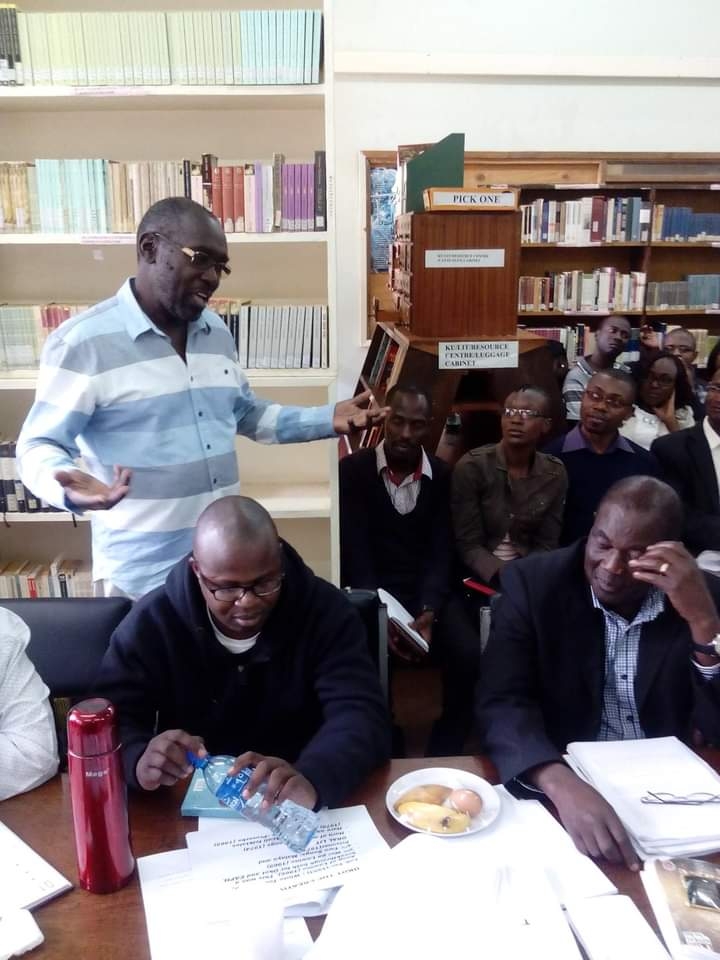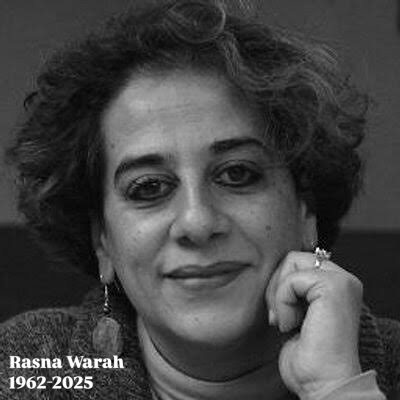
ART CHECK: Theatre ideology in Prof Obura’s life
Tribute revisits shift from acting to academia
The world is quieter for your passing, but your words will carry on
In Summary

Audio By Vocalize

There are silences that reverberate louder than words. A digital silence, such as an email left unanswered or a social media account bereft of new thoughts, marks more than the absence of noise. It signifies the stilling of a voice that once resonated with conviction, courage and compassion.
The silence that now resides in the spaces where the eminent scribe Rasna Warah once existed is not an ordinary one. It is the void left by a truth-teller whose pen cut through pretence with surgical precision, a voice that shaped the conscience of Kenya, laying bare its flaws, its triumphs and the unspoken narratives of its people.
She was born in 1962, a child of Nairobi, cradled in a city where the dreams of Independence mingled with the scars of colonialism. It was a time of change; ours was a young nation stepping tentatively into sovereignty.
Her life, unfolding against the backdrop of this newly minted republic, was bound inextricably to its struggles, its contradictions and its aspirations. Rasna carried with her a history that was both deeply personal and profoundly collective.
Her lineage stretched back to the late 19th century, when her great-grandfather arrived in East Africa among the Indian labourers and merchants drawn to the region by the building of the Ugandan Railway. The story of migration, of diaspora, of belonging and alienation, lived in her blood, shaping her understanding of home, identity and justice.
I met Rasna nearly two decades ago at a crossroads in my own intellectual and personal journey. I was a young postgraduate student, seeking to unravel the threads of culture, history and identity that wove through the Kenyan South Asian experience through literary scriptures. She was already a seasoned writer, a lighthouse guiding others through the stormy seas of political truth and cultural reflection.
Her words had become touchstones for my own work, illuminating paths I had not yet dared to tread. In her presence, I found not only a mentor of vast knowledge and unflinching honesty but a kindred spirit who lived with fierce purpose and profound empathy. To know her was to be drawn into a world where the personal was inseparable from the political, where every story mattered and every truth deserved its reckoning.
Our mutual city of birth, Nairobi, was more than a city to Rasna; it was a living, breathing organism, a place of relentless contradictions and fierce beauty. Through her pen, it came alive in ways no tourist brochure could capture.
She chronicled its sociopolitical essence: the mingling scent of roasted maize and diesel fumes, the chaotic dance of matatus with their blaring horns and kaleidoscopic graffiti, the sprawling slums whose tin roofs glinted like silver under the merciless sun.
She mapped the soul of our motherland for which Nairobi is a microcosm, showing us its hidden corners, its forgotten lives, its victories and its wounds. Where others saw disorder, she saw the logic of survival. Where some saw poverty, she found the exact reason for why it did exist and envoiced those left voiceless by systems designed to forget them.
Her work was not confined to social, political and cultural observation. Rasna Warah was a warrior with words as her weapons, a freedom writer, a shujaa of Kenya and Africa. Her columns in The Daily Nation did not merely report; they challenged, provoked and often outraged.
She was unflinchingly critical of corruption, both within Kenya and in the global structures of power that perpetuated inequality. She wrote of slums not as abstract problems but as human realities, of the aid industry not as saviour but as a complex, often exploitative machine.
She called out hypocrisies with a sharpness that left no room for comfort. Her prose was a clarion call, a demand that we look, listen and refuse to turn away from the inconvenient truths of our world.
Cancer, insidious and relentless, came for her with a cruelty that seemed almost poetic in its irony. For a woman who had always fought so fiercely, her body became a battlefield where an unwelcome enemy waged its war.
Yet even as illness gnawed at her strength, her spirit remained undiminished. In those final years, she continued to write with the same ferocity that had always defined her. Each word was a refusal to be silenced, each sentence an illustration of her enduring defiance.
Her legacy is a library of unvarnished truths, a testament of fearless inquiry and unrelenting passion. She wrote four books: Unsilenced, War Crimes, Red Soil and Roasted Maize, and Mogadishu Then and Now. They stand as monuments, more enduring than stone, to the power of a single voice in a world that often seeks to drown out dissent. Her essays, her interviews, her sharp critiques of international development and its often imperialist underpinnings, remain as a call to arms for the next generation of thinkers and doers.
But our grief today is not just for her words. It is for the woman behind them. The friend, the mentor, the sister-in-arms. For those of us who walked alongside her, she was a force of nature, a quiet fire that warmed us with her generosity, and a fierce storm that shook us awake with her unrelenting demands for justice. She taught us that silence is complicity, that to witness injustice is to be charged with the duty of action, and that truth, no matter how bitter, no matter how dangerous, must always be spoken.
Her final columns, written in the shadow of death, were as piercing as ever. She wrote of Nairobi’s fragile infrastructure, of corruption woven into the fabric of everyday life, of a world fractured by greed and indifference. She did not flinch, even as her own mortality loomed. In her courage, she left us a final lesson: the body may falter, but the spirit of resistance is immortal.
I strongly believe that the death of a scribe, then, is not an end but a challenge to those who remain. The torch has been passed. Its flame flickers but does not die. Let us carry it forward, each of us in our own way, remembering always the words Rasna Warah lived by:
“The ink of truth is more enduring than stone, for it carves its place in the soul of time.”
Rest now, Rasna lioness of Africa, in the peace you so richly deserve. The world is quieter for your passing, but your words will echo through the ages.

Tribute revisits shift from acting to academia

Unyielding belief in their potential is the key to success